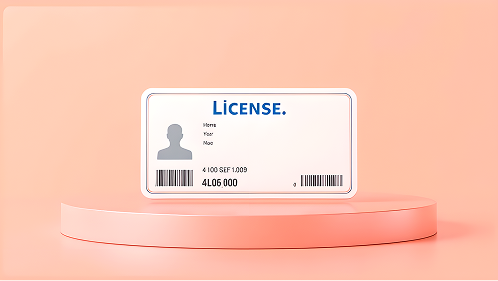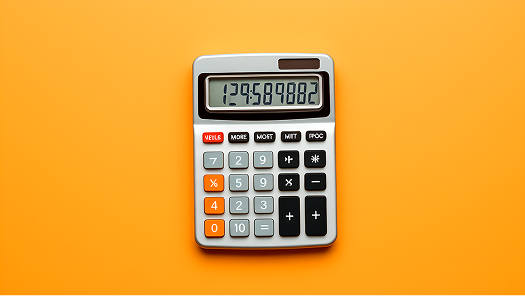Welcome to the Lion City, where the food is spicy, the weather is hot, and the benefits of permanent residency are abundant. If you’re an expat in Singapore, chances are you’ve heard about the perks of obtaining Singapore PR status. But what exactly are these benefits? And how do you go about applying for them? Well, dear expat friend, grab your iced kopi and read on, as we dive into the world of Singapore PR benefits.
Introduction
This article aims to provide an engaging and informative guide to Singapore Permanent Residency for expats living in Singapore. From eligibility criteria to application tips, we’ve got you covered. So sit back, relax, and let us be your GPS on this journey to becoming a true-blue Singaporean (almost).

What is Singapore Permanent Residency?
Definition of Singapore Permanent Residency
Singapore Permanent Residency (PR) is a residential status that allows non-Singaporeans to live, work, and settle in Singapore without any time limit. It is one step below citizenship but offers many similar privileges and rights.
Eligibility Criteria for Obtaining Singapore PR
To apply for Singapore PR, you must fall under one of the following categories:
- Employment Pass or S Pass holder
- Spouse of a Singapore citizen or PR
- Unmarried child under 21 years old born within or outside marriage to a Singapore citizen or PR
- Aged parent of a Singapore citizen
- Student studying in Singapore
- Foreign investor or entrepreneur
Benefits of Having Singapore PR for Expats
Acquiring Singapore PR status comes with numerous benefits, such as:
- Long-term stay in Singapore without the need for visa renewals
- Freedom to switch jobs without reapplying for a work pass
- Access to public housing schemes
- Eligibility for the Central Provident Fund (CPF) scheme, providing retirement and healthcare benefits
- Priority in school admissions for your children
- Possibility of sponsoring family members for PR or long-term visit pass
How to Apply for Singapore PR
Step-by-Step Process for Applying for Singapore PR
- Check your eligibility and gather necessary documents
- Submit your application online via the e-PR system
- Pay the non-refundable S$100 application fee
- Wait for the outcome, which can take between four to six months
- If approved, collect your PR documents and identity card
Required Documents and Fees for a Singapore PR Application
Some of the key documents you’ll need for your PR application include:
- Valid passport
- Employment Pass or S Pass
- Recent passport-sized photo
- Birth certificate
- Marriage certificate (if applicable)
- Educational certificates
- Employer’s letter of consent
For a comprehensive list of required documents, refer to the Immigration and Checkpoints Authority (ICA) website.
Unlock the Blueprint to Financial Success in Singapore!
Empower your business with strategies, insights, and tools tailored for the modern Singapore entrepreneur.

Tips for a Successful Singapore PR Application
- Ensure all your documents are complete, accurate, and up-to-date
- Highlight your contributions to Singapore’s society and economy
- Write a strong cover letter explaining why you want to become a PR
- Seek guidance from professionals like those at Bluebox who have experience assisting expats in obtaining Singapore PR
Renewing and Maintaining Singapore PR Status
Guidelines for Renewing Singapore PR Status
To renew your PR status, you’ll need to apply for a Re-Entry Permit (REP) before your existing REP expires. This can be done [online via the e-REP system. The renewal process is usually quick and straightforward, provided you meet the requirements.
Requirements for Maintaining Singapore PR Status
To maintain your Singapore PR status, you must:
- Reside in Singapore for a certain period (as specified in your REP)
- Contribute to the CPF scheme if you’re employed
- Ensure your dependents (if any) comply with the PR conditions and requirements
Tips for a Successful PR Renewal or Maintenance
- Keep track of your REP’s validity and renew it on time
- Continuously contribute to Singapore’s society and economy
- Maintain a good record of tax compliance and CPF contributions
- Seek guidance from professionals like those at Bluebox who have experience in PR renewal and maintenance
Frequently Asked Questions (FAQs) about Singapore PR Benefits
Q: Can I apply for Singapore citizenship after obtaining PR status?
A: Yes, after two years of holding PR status, you may be eligible to apply for Singapore citizenship. However, the approval is subject to various factors, including your family ties, economic contributions, and integration into Singaporean society.
Q: Will my children be required to serve National Service (NS) if they become PRs?
A: Male children who obtain Singapore PR through their parents are required to serve NS upon reaching the age of 18. This is an essential consideration for families when applying for PR status.
Q: Can I purchase property in Singapore as a PR?
A: As a Singapore PR, you can purchase certain types of properties, such as private condominiums and resale HDB flats. However, there are restrictions on buying new HDB flats and landed properties.
Q: What are the tax implications of becoming a Singapore PR?
A: Singapore PRs are subject to progressive resident tax rates, which are generally lower than those for non-residents. For more information on tax implications, consult Bluebox’s expatriate advisory services.
Conclusion
Obtaining Singapore PR status is a significant milestone in your journey as an expat living in the Lion City. With numerous benefits and opportunities at your fingertips, it’s undoubtedly worth considering. To increase your chances of success, seek professional guidance from experts like those at Bluebox, who have extensive experience assisting expats in their quest for PR status.
Ready to embark on your Singapore PR journey? Check out Bluebox’s comprehensive Global Mobility services and get started today.
Remember, the road to Singapore PR might be long and winding, but with the right guide (and perhaps a few servings of chicken rice), you’ll soon find yourself enjoying the fruits of your labor – or should we say, the durians of your labor? Good luck!
See How We Drive Revenue Growth for Our Clients
Explore the Insights and Tactics That Fuel Our Clients’ Success
Relevant Bluebox Service Pages and URLs
- Global Mobility
- Immigration Advisory
- Work Permits, Visas, and Permanent Residency
- Expatriate Advisory
- Initial Tax Review
- Strategic Tax Planning
- Tax Filing and Compliance
Additional Resources
Helpful Links for Learning More about Singapore PR Benefits
- Singapore Immigration and Checkpoints Authority (ICA) – Official government website providing information on Singapore PR eligibility, requirements, and application process.
- Ministry of Manpower (MOM) – Government website offering information on employment passes, work permits, and other employment-related matters in Singapore.
- HDB InfoWEB – Official website of the Housing & Development Board, with details on public housing schemes and eligibility for Singapore PRs.
- Central Provident Fund (CPF) Board – Official website for the CPF scheme, providing information on retirement and healthcare benefits for Singapore PRs.
| Topic | Summary |
|---|---|
| What is Singapore PR? | Singapore Permanent Residency allows non-Singaporeans to live, work, and settle in Singapore without any time limit. |
| Benefits of Singapore PR | Long-term stay, freedom to switch jobs, access to public housing schemes, CPF scheme, priority in school admissions, and sponsorship of family members. |
| Applying for Singapore PR | Check eligibility, submit application online, pay the fee, wait for the outcome, and collect PR documents if approved. |
| Renewing and Maintaining Singapore PR | Apply for a Re-Entry Permit (REP), reside in Singapore, contribute to CPF, and ensure dependents comply with PR conditions. |
| FAQs | Citizenship, National Service, property purchase, and tax implications are some common concerns for expats seeking Singapore PR benefits. |
People Also Ask – Related FAQs
Q: How long does it take to become a Singapore citizen after obtaining PR status?
A: After holding PR status for at least two years, you may be eligible to apply for Singapore citizenship. However, the time it takes to become a citizen varies depending on individual circumstances and government processing times.
Q: Can I work in another country while holding Singapore PR status?
A: Yes, you can work in another country while holding Singapore PR status. However, you must maintain your Re-Entry Permit (REP) and fulfill the residency requirements to avoid losing your PR status.
Q: Is it possible to hold dual citizenship with Singapore PR?
A: No, dual citizenship is not allowed in Singapore. If you eventually apply for and obtain Singapore citizenship, you will be required to renounce your previous citizenship.
Q: Can I start my own business as a Singapore PR?
A: Yes, Singapore PRs are allowed to start their own businesses. You may need to register your company with the Accounting and Corporate Regulatory Authority (ACRA) and comply with relevant regulations and requirements.
Q: What is the difference between an Employment Pass and Singapore PR status?
A: An Employment Pass is a work visa that allows foreign professionals to work in Singapore for a specific period, whereas Singapore PR status is a long-term residential status without a time limit. PR status offers more benefits and stability compared to an Employment Pass.
How to Guide: Obtaining Singapore PR Status – Step by Step Checklist
| Step | Task | Responsible Party | Timeline/Duration |
|---|---|---|---|
| 1 | Determine eligibility for Singapore PR | Applicant | Immediate |
| 2 | Gather necessary documents for PR application | Applicant | 1-2 weeks |
| 3 | Submit PR application online via e-PR system | Applicant | 1 day |
| 4 | Pay the non-refundable S$100 application fee | Applicant | Same day as submission |
| 5 | Wait for the PR application outcome | Immigration and Checkpoints Authority (ICA) | 4-6 months |
| 6 | Collect approved PR documents and identity card | Applicant | 1-2 weeks after approval |
| 7 | Apply for a Re-Entry Permit (REP) | Applicant | Before the current REP expires |
| 8 | Maintain residence in Singapore as per REP requirements | Applicant | Ongoing |
| 9 | Contribute to the CPF scheme (if employed) | Applicant & Employer | Ongoing |
| 10 | Ensure dependents comply with PR conditions | Applicant | Ongoing |
Note that timelines and durations may vary depending on individual circumstances and any changes in government regulations.





